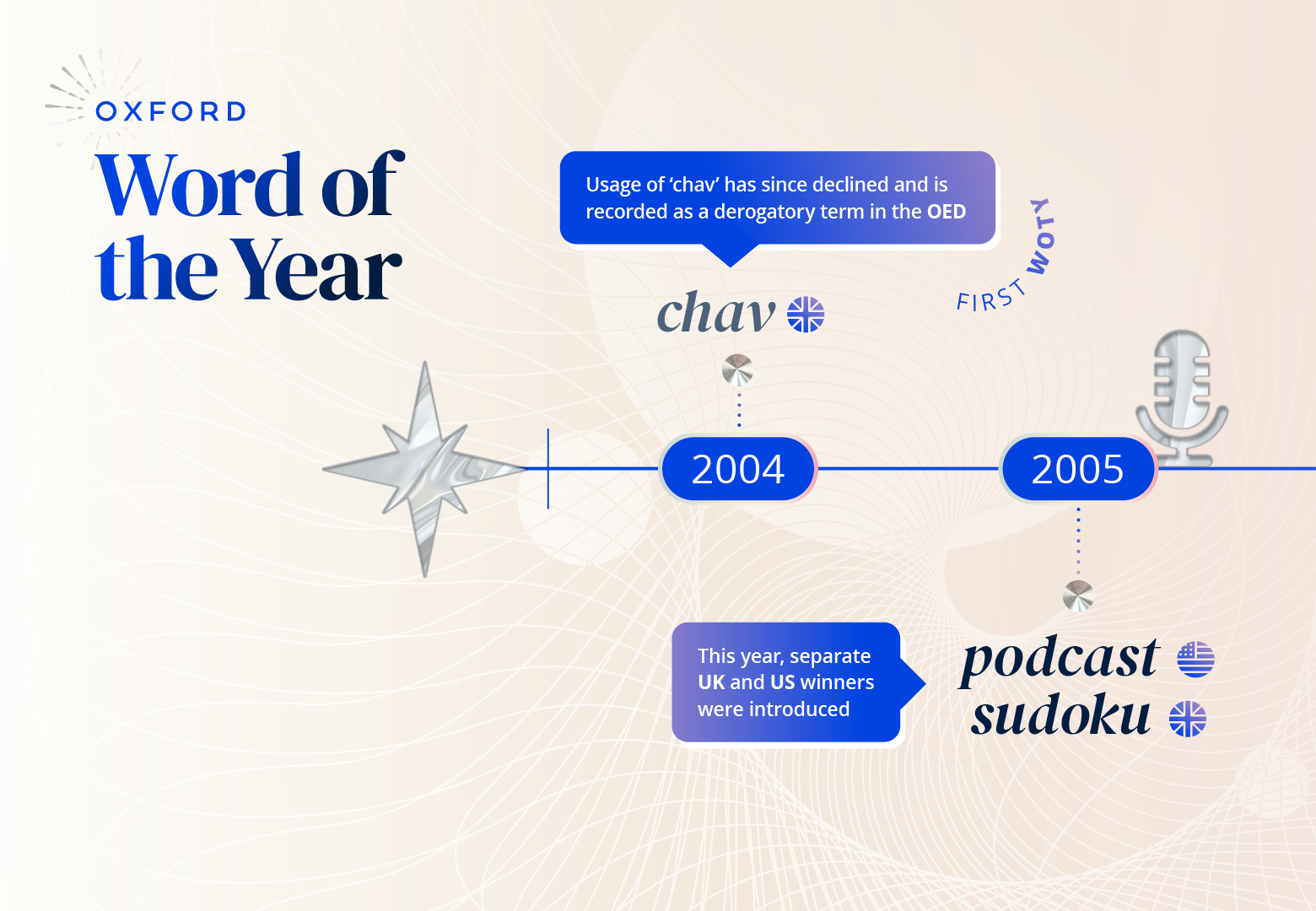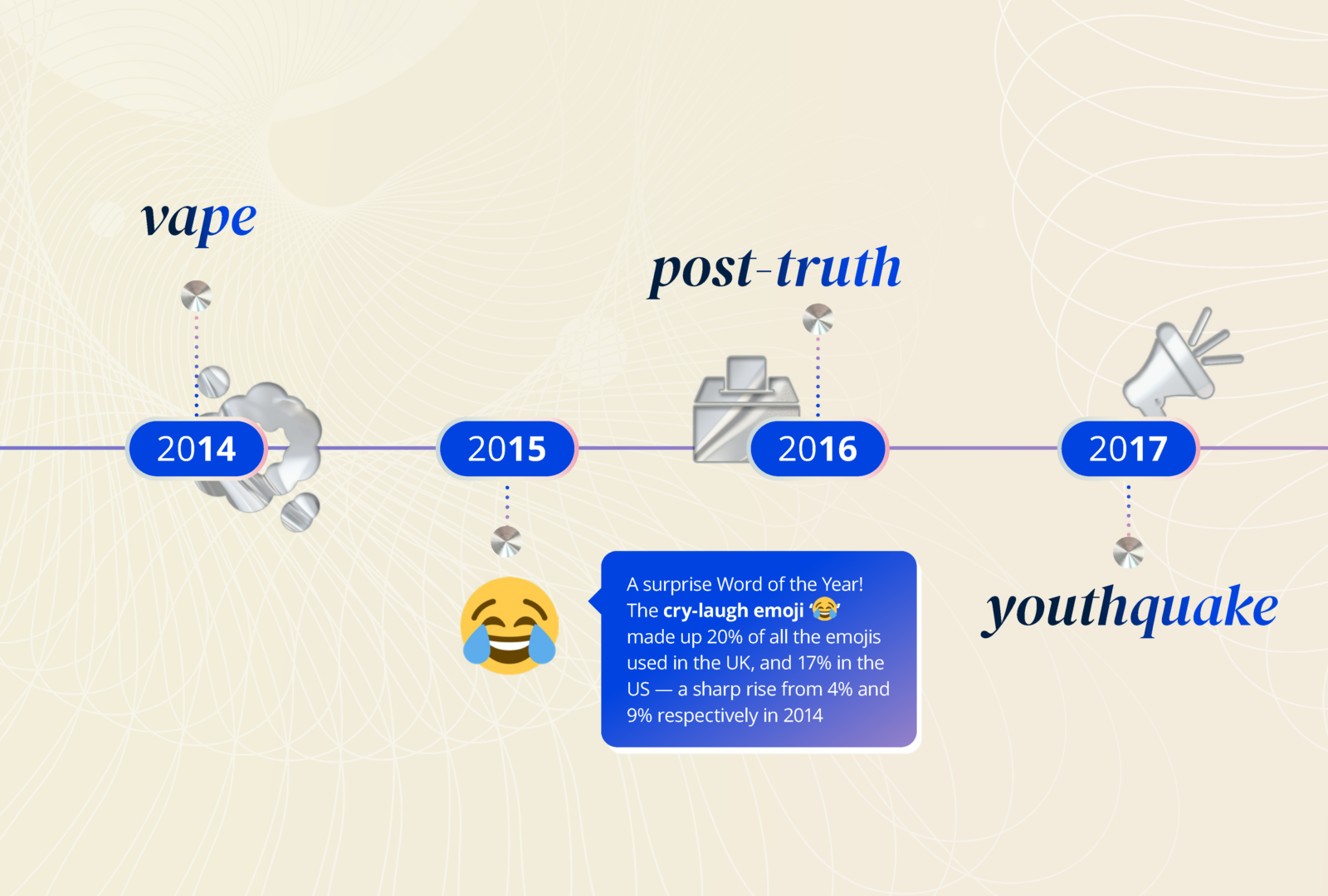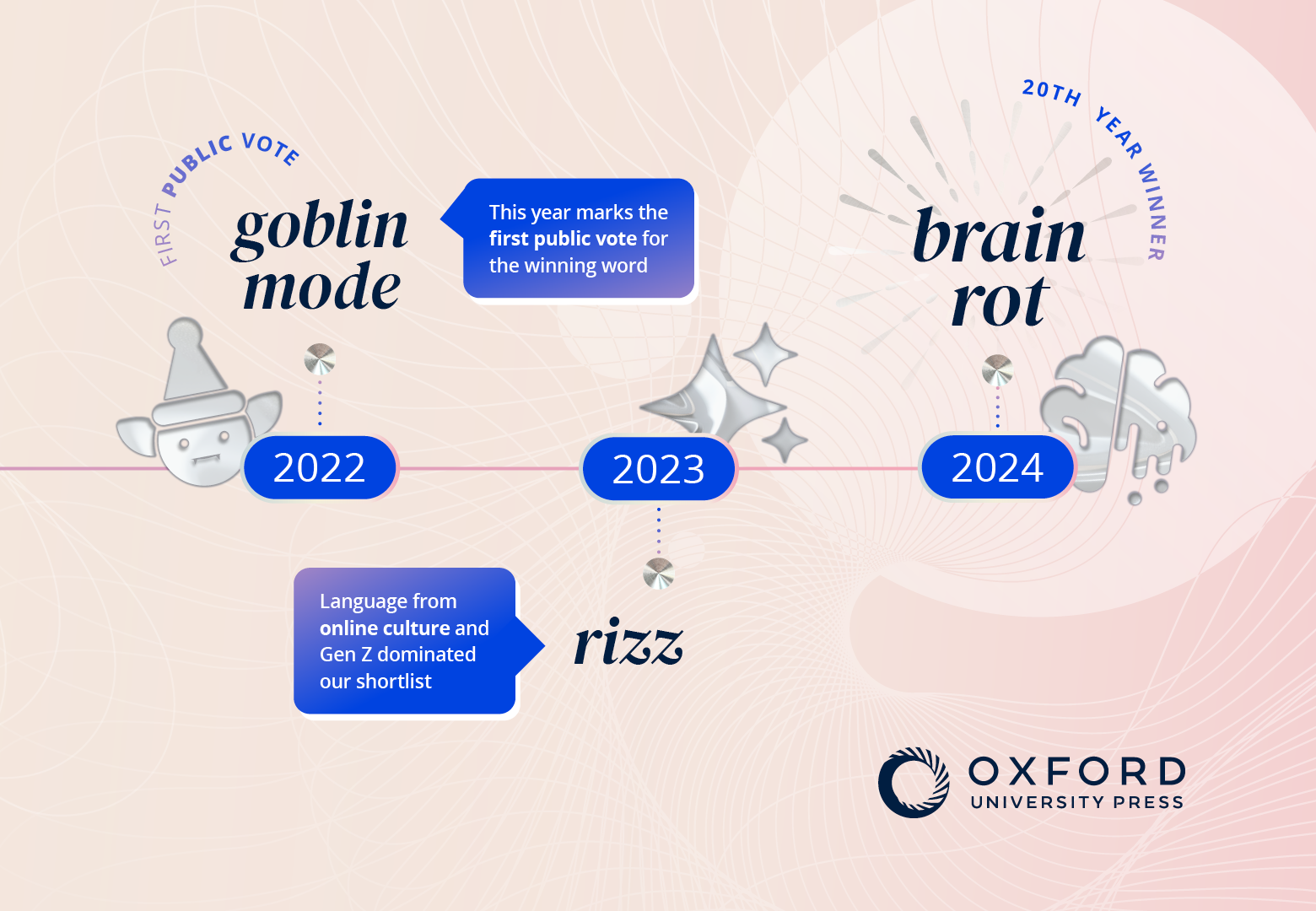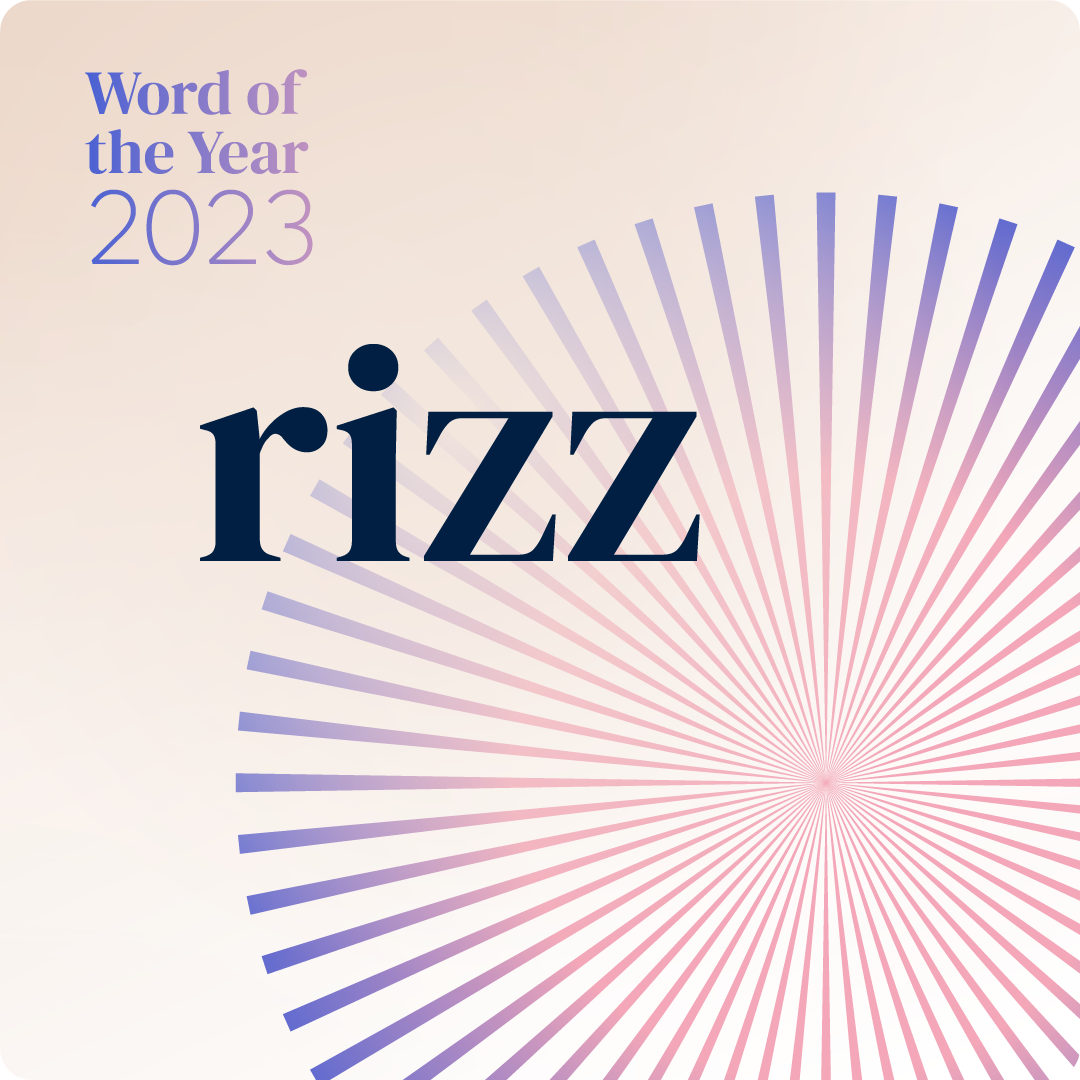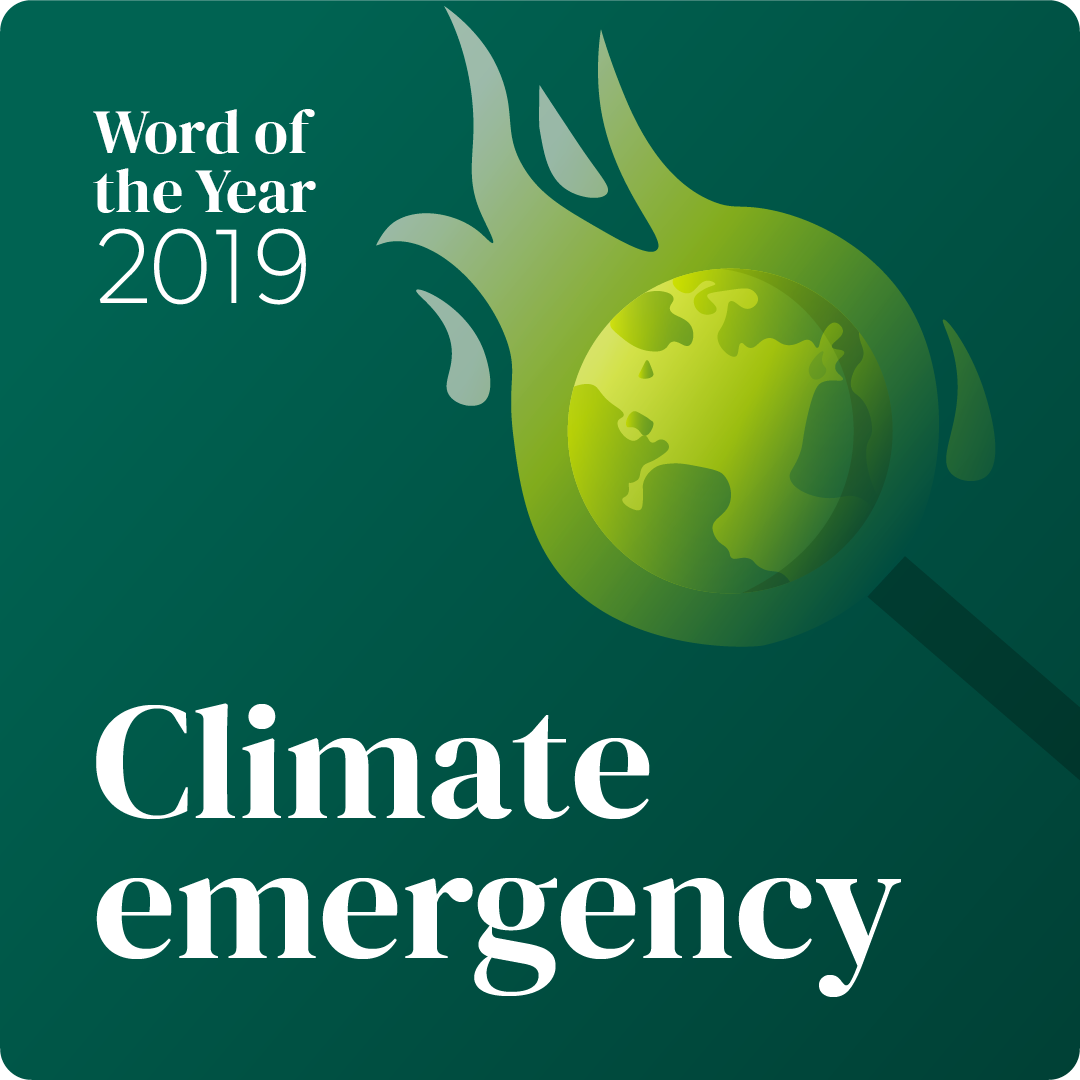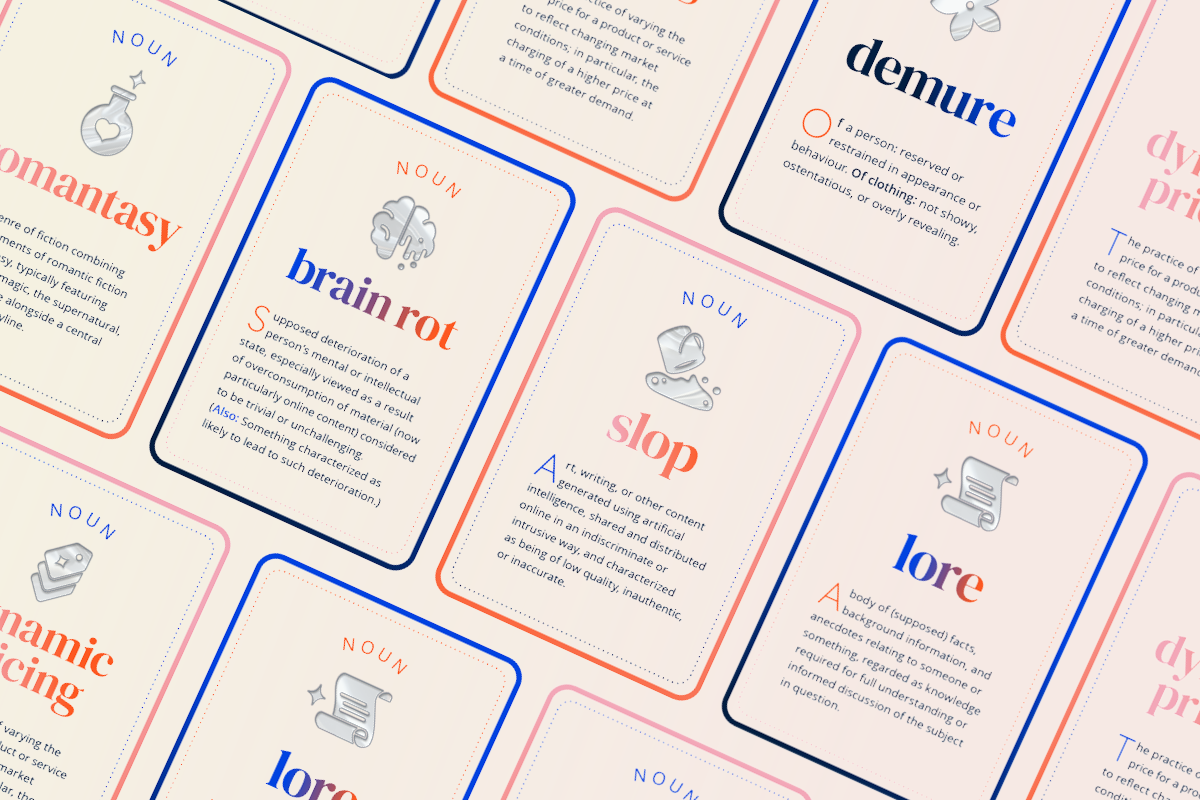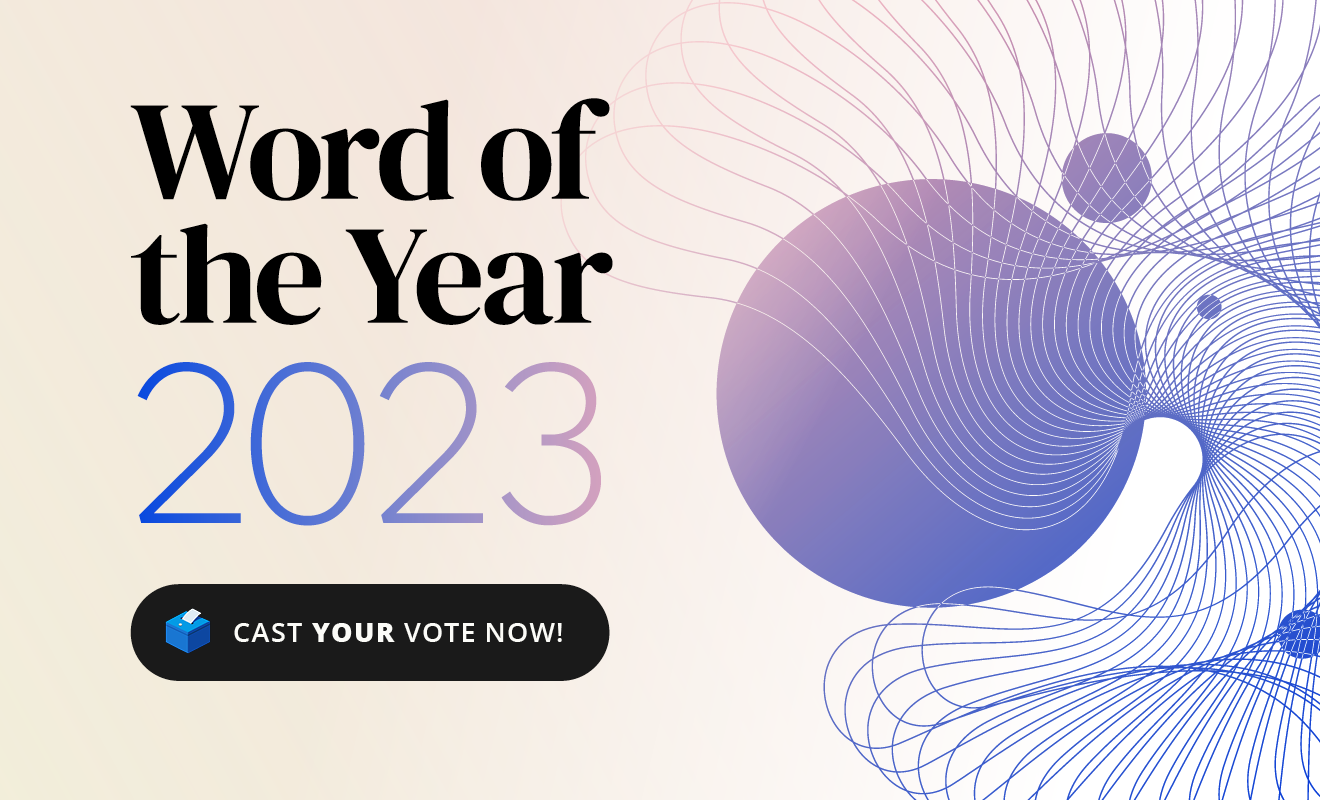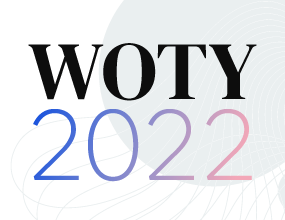And the Oxford Word of the Year 2024 is…
brain rot
(n.) Supposed deterioration of a person’s mental or intellectual state, especially viewed as a result of overconsumption of material (now particularly online content) considered to be trivial or unchallenging. Also: something characterized as likely to lead to such deterioration.
Why ‘brain rot’?
After over 37,000 votes, worldwide public discussion, and analysis of our language data, we have named ‘brain rot’ as our Word of the Year for 2024.
Our experts noticed that ‘brain rot’ gained new prominence this year as a term used to capture concerns about the impact of consuming excessive amounts of low-quality online content, especially on social media. The term increased in usage frequency by 230% between 2023 and 2024.
The first recorded use of ‘brain rot’ was found in 1854 in Henry David Thoreau’s book Walden, but has taken on new significance as an expression in the digital age.
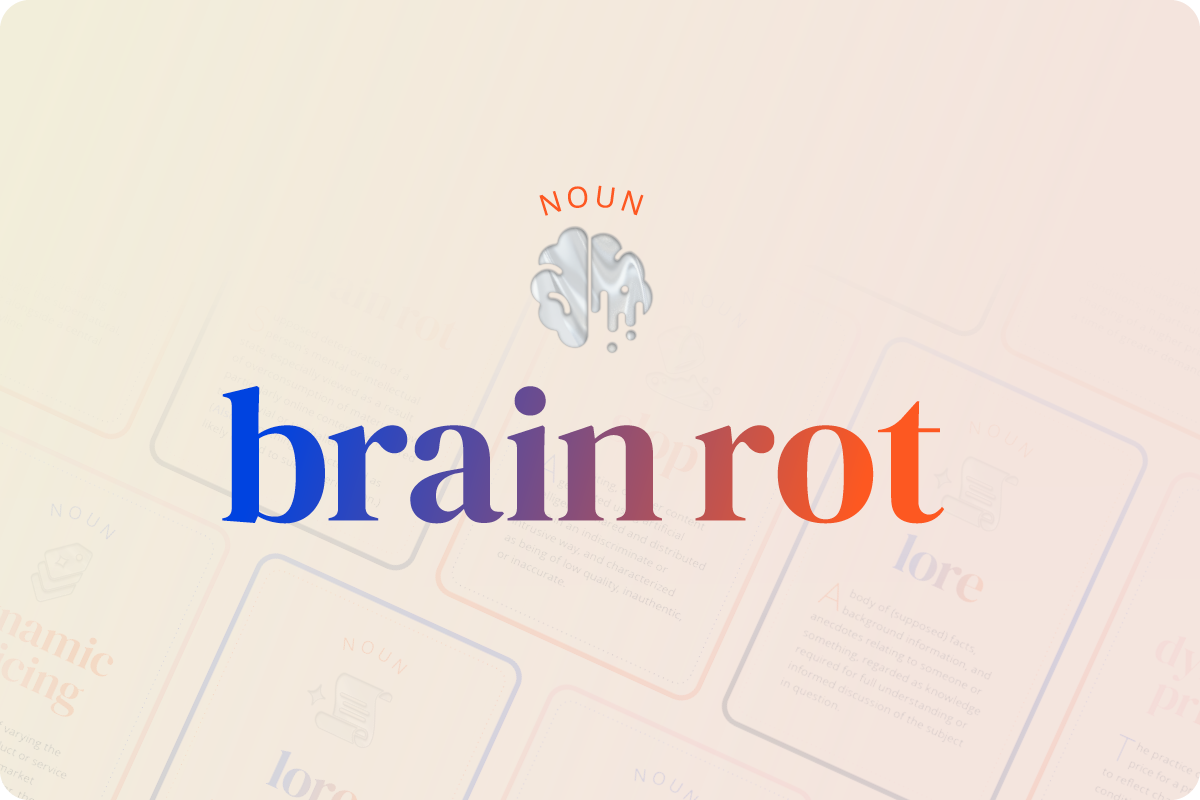

Casper Grathwohl
President of Oxford Languages
”Looking back at the Oxford Word of the Year over the past two decades, you can see society’s growing preoccupation with how our virtual lives are evolving, the way internet culture is permeating so much of who we are and what we talk about. Last year’s winning word, ‘rizz’, was an interesting example of how language is increasingly formed, shaped, and shared within online communities.
‘Brain rot’ speaks to one of the perceived dangers of virtual life, and how we are using our free time. It feels like a rightful next chapter in the cultural conversation about humanity and technology. It’s not surprising that so many voters embraced the term, endorsing it as our choice this year.”
Learn more about our shortlist
Our approach
Every year, our lexicographers analyse the English language to summarize words and expression that have reflected our world during the last 12 months.
We analyse data and trends to identify new and emerging words and expressions, which our lexicographers think of as a ‘single unit’, and examine the shifts in how more established language is being used. The team also consider suggestions from our colleagues and the public, and look back at the world’s most influential moments of the year to inform their shortlist—culminating in a word or expression of cultural significance.
Celebrating 20 years of Oxford Word of the Year
In 2024, we’re delighted to be celebrating our 20th anniversary, as we reflect on the words that stood the test of time, as well as the ones that captured a moment.
Defining the past 20 years
Find out all about the history of Oxford Word of the Year with us.
We take a look at our past winners and shortlisted candidates, and explore some of the key themes, developments, and moods that they have captured over the years.

Recent winners
Read more about some of our winning words and how we chose them, with insights shared by our Oxford Languages team.
Related stories


 brain rot
brain rot demure
demure dynamic pricing
dynamic pricing lore
lore romantasy
romantasy slop
slop